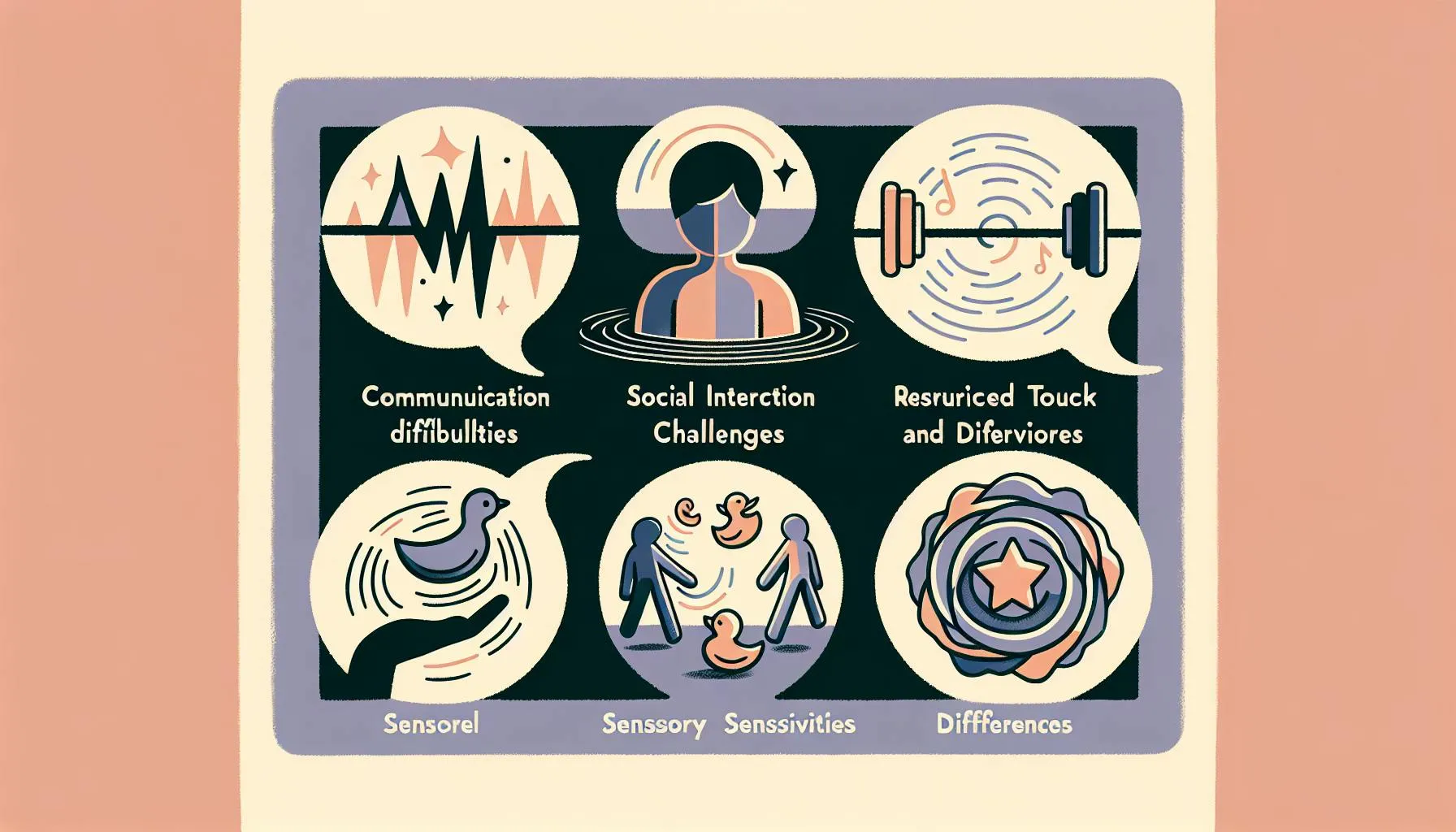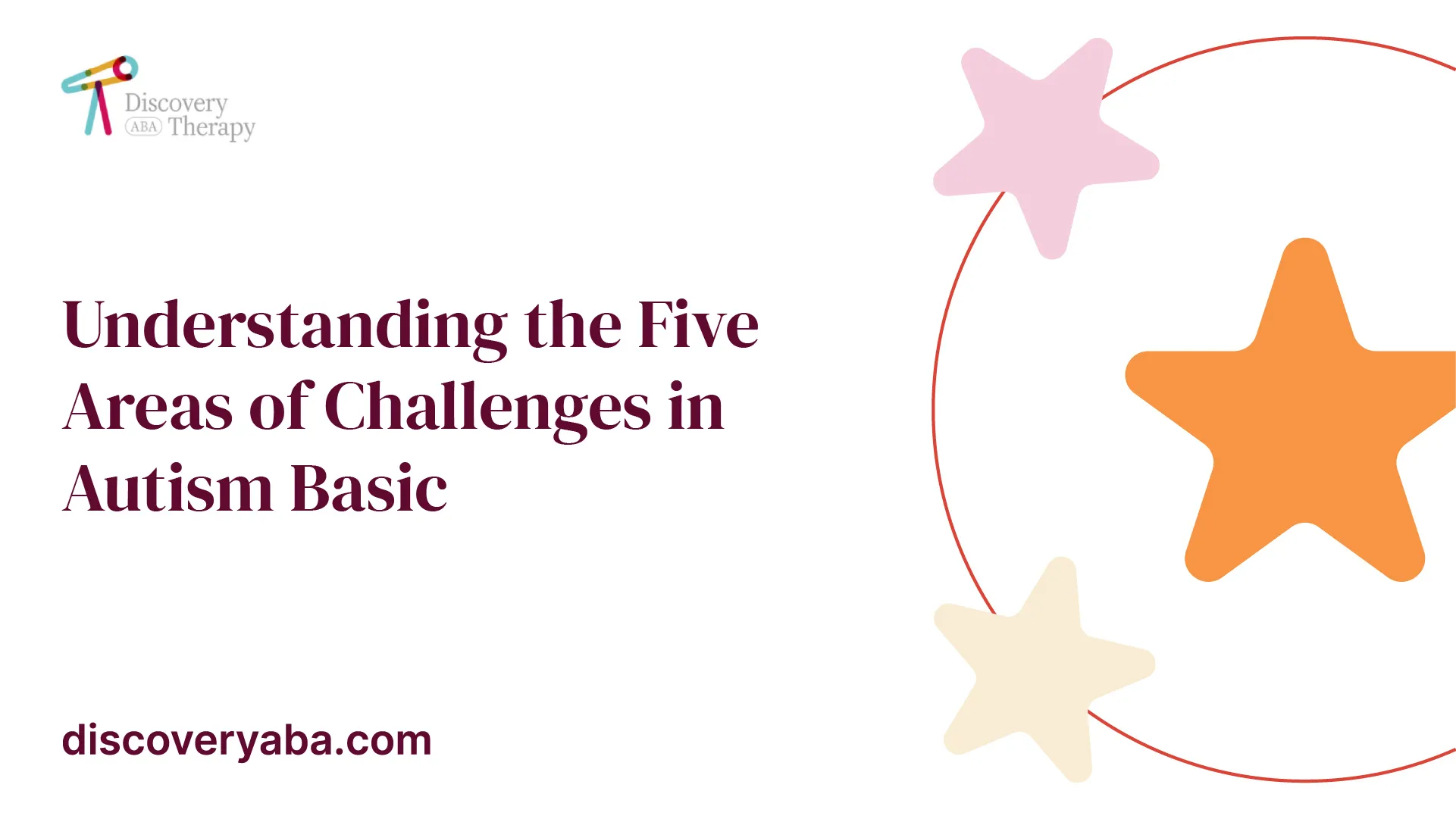Understanding the Five Areas of Challenges in Autism Basic
Discover the five areas of challenges in autism basics. Unravel the social, communication, sensory, behavior, and cognitive aspects.

The Five Areas of Challenges in Autism Basics
Autism is a complex neurodevelopmental disorder that affects individuals in various ways. To understand the challenges faced by individuals with autism, it is important to explore the five key areas of difficulties: communication, social skills, sensory processing, behavior, and executive function.
Communication Challenges in Autism
Communication challenges are a hallmark of autism. Individuals with autism may have difficulties in understanding and using language for communication. Non-verbal communication, such as gestures, facial expressions, and tone of voice, can be particularly challenging for individuals with autism to comprehend and respond to appropriately. These challenges can impact their ability to engage in conversations and develop social relationships.

Social Skills Challenges in Autism
Social skills challenges are another significant area of difficulty for individuals with autism. They may struggle to understand social cues, norms, and expectations, which can hinder their ability to interact and connect with others. Difficulties in social interactions can range from challenges in initiating and maintaining conversations to difficulties in understanding and responding appropriately to social situations. Building and maintaining relationships may require additional support and strategies.
Sensory Processing Challenges in Autism
Individuals with autism often experience sensory processing challenges, which can affect the way they perceive and respond to sensory stimuli. They may be highly sensitive to sensory inputs such as noises, lights, textures, tastes, and smells. This heightened sensitivity can lead to sensory overload and discomfort. On the other hand, some individuals with autism may seek out sensory stimuli to regulate their sensory experiences. Sensory challenges can impact various aspects of their daily lives and may require accommodations or interventions to mitigate their impact.
Behavioral Challenges in Autism
Behavioral challenges are common among individuals with autism. These challenges can manifest as repetitive behaviors, intense interests in specific topics, difficulties with transitions or changes in routine, or meltdowns in response to overwhelming situations or sensory stimuli. Understanding and managing these behaviors require tailored strategies and interventions to support individuals with autism in their daily lives.
Executive Function Challenges in Autism
Executive function refers to a set of cognitive processes that enable individuals to plan, organize, manage time, shift attention, and complete tasks. Individuals with autism may face difficulties in executive functioning, which can impact various aspects of their daily lives, from completing school assignments to maintaining personal hygiene. Challenges in executive function can manifest as difficulties in planning, organizing, breaking tasks into smaller steps, managing time, and shifting focus. Targeted interventions and strategies can help individuals with autism improve their executive functioning skills and enhance their independence.
Understanding the five areas of challenges in autism basics provides valuable insight into the diverse difficulties faced by individuals on the autism spectrum. By recognizing and addressing these challenges, appropriate support and interventions can be provided to enhance the overall well-being and quality of life for individuals with autism.
References
Does Your Child Have An Autism Diagnosis?
Learn More About How ABA Therapy Can Help
Find More Articles
Contact us
North Carolina, Nevada, Utah, Virginia
New Hampshire, Maine
Arizona, Colorado, Georgia, New Mexico, Oklahoma, Texas
.avif)




































































































